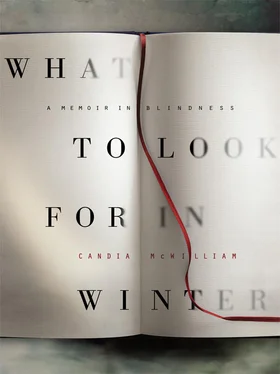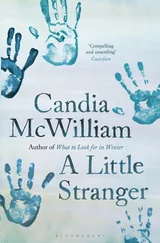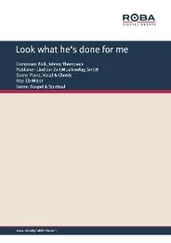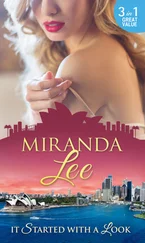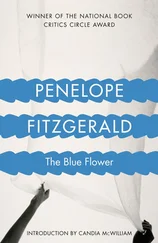Then we did just stay in, visit, talk and think about houses. Some of these were small and some were not. What they had in common was that they were at that time imperilled.
Where were you when you first read Struwwelpeter ? I don’t know if you can buy it now; it may be available from antiquarian or ‘special-interest’ booksellers. The first copy of it I found was certainly from the century before last. Its terrifying vigorous bossy pornography has set some of my rules for life. The red-legged scissor-man visited me only last night, oddly enough with the face of Richard Dawkins, with whom, how can one’s dreams be this trite, I was playing chess. Augustus the chubby lad—‘fat ruddy cheeks Augustus had’—is still, on bad days, my picture of myself, and, even when I got down to the pin man Augustus in my thirties, I still felt like the fat boy before he started rejecting his nutritious soup. I found Struwwelpeter under a bed I was sleeping in at Culzean Castle in Ayrshire, built by Robert Adam on a cliff over the sea. Daddy was restoring it, quite considerably with his own hands; the castle has a high oval rotunda with a sweeping exaltation of staircase, arising with composure like written music up inside its shell. Daddy would be up a trembly ladder with his cigarette, re-limning cartouches or re-plastering crumbled bits of Vitruvian scrollwork. I was never, while he breathed, not worried about my father. When he died, there was at least that; he couldn’t fall off a battlement or dive through a skylight. Or, indeed, he couldn’t ever again get arrested for trespass or burglary.
The grateful nation of Scotland had just given a wing of Culzean in perpetuity to the American people for the use of their President should he find himself on the Ayrshire coast. I was left to potter about while Daddy worked. I had at the time a broken right arm and dislocated shoulder so I had learned to draw and write with my left hand. I was four but was very proud that I had a duffel coat made for a fourteen-year-old to accommodate my plaster. I was sleeping in President Eisenhower’s bed, or at any rate having a rest in it, when I found Struwwelpeter. Who the Dickens can have left it there?
Culzean sits on the Ayrshire coast in replete beauty among its gardens. We would always be there for daffodil time, later in Scotland than in England, and the creak of daffodils as I walked among them and smelled the sea from within the castle ramparts was safety itself. The spring of the broken arm I spent secretly memorising Struwwelpeter , being spoilt by the tea-room ladies who gave me glacé cherries, and sitting atop one of the stocky little cannons that defend this gracefully parodic masterpiece. I tried daily, failed daily, to lift a cannonball. The balls were arranged in neat pyramids beside each gun. In the evening after a sunny day they held warmth until the light had gone and if you licked them the rusty salt taste was delicious. It’s the taste of oysters. Blood, iron, iodine.
Around 1960, the National Trust for Scotland hired a cruise ship from a Norwegian shipping line and invited archaeologists and other enthusiasts to take a tour of the Hebrides on the SS Meteor . Particular attention was to be paid to brochs, early structures sometimes so early as to be hardly perceptible to the uninitiated. My father was overseeing some aspects of the tour and giving informative evening talks.
For a greedy only child who was the only child on the ship, it was a taste of the high life. One evening there really was a swan made of ice at the Captain’s table and, during the day, a childless American couple made much of me. We passed the great organ pipes of Staffa and Fingal’s Cave, we stopped at Iona where I heard the turf praying. No one had yet spoken directly to me of God, so I had built him for myself.
I had not become a liar yet and I am not a liar now, but I do believe that we made harbour at the island of Colonsay, disembarked and toured its surprising tropical gardens that surround the pretty open-armed big house. It only takes one more squeeze of my memory to have it believe that we met the handsome wife of the island’s laird. She was nice to me, my false memory tells me, because I was the only child aboard and she knew that plurality can nourish a being.
One of seven children herself, and mother of six, she seems in my mind’s eye to be wearing a flowered dress and gloves. Knowing what I know now, I realise I must have made it all up.
Perhaps on account of my father’s absent-mindedness about my mother’s birthday, I felt some unease around 3 September each year. On her thirtieth birthday, her cat Nancy Mitford fell two stone storeys from her bedroom. My superstitious mother really did take this as an ill omen, to which she often referred, to do with cats having nine lives but herself just the one and her birthday being the day the Second World War began. On my own thirtieth birthday, I was making supper when a large white rabbit fell from the sky. It screamed horribly, for its back was broken. Our neighbour from the flat next door kindly despatched it. Or should that be our neighbour from the flat next door despatched it, kindly?
A large and floppy-eared rabbit, the poor thing had been bought by the tenant of the top flat in our building as part of his pet python’s supper. The RSPCA visited in due course and found quite a selection of reptiles, including, tear-jerkingly predictably, a crocodile, diappointingly not resident in the lavatory.
Even at six, though, I had come to see that birthdays were the teeth of time and that things were not improving between my parents. My own high-summer birthday was celebrated with strawberries and cream. I was allowed a friend over. I chose a girl at random because I didn’t have a best friend yet. She was called Gillian. I thought her very dainty and pretty. When the time came for cake and strawberries and cream she cried and cried because she did not like what she called ‘real cream’. She was scared of my parents’ English accents and had met cream only once before, when it had been nice, between two pieces of meringue. It was ‘shop cream’. Real cream, she said, was dirty because it came from cow-juice and gave you an illness that made you cough up blood.
In embarrassment made worse by the need for festivity, my parents said goodbye to our poor little guest with her white socks and angora bolero. Later, the childish part of the day was over and the dinner table was full of adults, the blue and white plates, hot food. In the sky were both the sun and the moon. There was one more, and most beautiful present, a dress made of the best velvety cotton, cut exactly to my dimensions and embroidered inside its neck with lavender silk thread spelling out my full name Candia Frances Juliet in beautiful clear handwriting made with a needle. This gift was to go deeper with my mother than any tattoo on skin and I was one year closer to becoming a fat little liar.
A vacancy had been filled in our family, no larger than a needle’s eye.
In the life of the present I am reading, that is listening to, Paradise Lost. It is read by Anton Lesser, whose intelligent doubt-filled voice somehow emphasises the clouded giants and rivers of pearl he speaks of through the mind of Milton. So far in my blindness only my accountant has been sufficiently innocent and jolly to mention Milton to me, over the receipts.
How consoling and terrifying it was to hear the words: ‘the mind is its own place; and in itself / can make a heaven of hell, a hell of heaven’. When first I became blind, Fram, who lives sixty miles away, suggested that I would never be quite alone because I have ‘my art’. I felt at once consigned to live off something that I was not talented or morally courageous enough to address. It was like telling a deer to build its future around raw meat. I’m doing my best and I’m quite aware that whatever my ‘art’ was, it will have been changed by my blindness. It remains to be seen, if I may use that word, how. I was never alone when I could read.
Читать дальше
